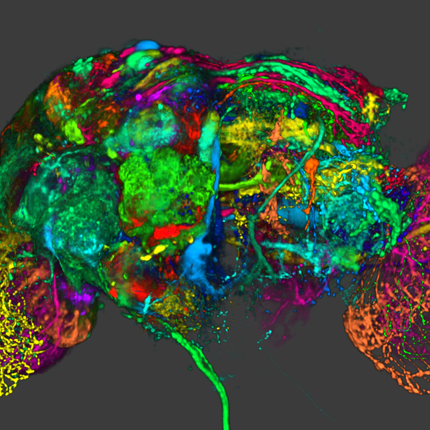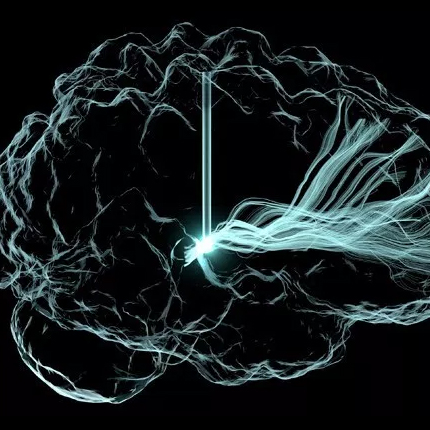Faculty
- Chris Butson - University of Florida
- Tom Fletcher - University of Virginia
- Juliana Freire - NYU
- Guido Gerig - NYU
- Miriah Meyer - Linköping University
- Steve Parker - Nvidia
- Claudio Silva - NYU
- Dongbin Xu - Oregon State University
Post Docs
- Erik W. Anderson - Electrical Geodesics, Inc
- Tushar Athawale
- David Brayford - University of Utah Department of Chemistry
- Martin Bertram - Rhine-Waal University of Applied Sciences
- Joshua Blauer, Medtronics LinkedIn
- Alexander Bock
- Jefferson Brown
- Xavier Cavin - Inria Lorraine
- Guoning Chen - University of Houston
- João L.D. Comba - Universidade Federal do Rio Grande do Sul
- Moritz Dannhauer
- Stanley Durrleman - INRIA Research Scientist
- Lowell Taylor Edgar, Imperial College London
- John Martin Edwards
- James Fishbaugh
- Shachar Fleishman, Intel LinkedIn
- Pascal Goffin
- Pascal Grosset, Los Alamos National Lab
- Stefan Gumhold - TU Dresden
- Yanyan He, New Mexico Institute of Mining and Technology LinkedIn
- David Hedges
- Jarome Hogue
- Brad Hollister
- Irina Ionescu, Dartmouth-Hitchcock Medical Center LinkedIn
- Thiago Ize - Solid Angle
- Vahid Keshavarzzadeh - LinkedIn
- Mark Kim
- Jens Krueger - Interactive Visualization and Data Analysis Group (IVDA)
- Sidharth Kumar
- Lauro Lins
- Oren Livne - University of Utah, Academic Outreach and Continuing Education
- Joshua Levine - University of Arizona
- Mahsa Mirzargar, University of Miami LinkedIn
- Maria Moreno
- Blake Nelson, Space Dynamics Laboratory LinkedIn
- Luis Gustavo Nonato - Instituto de Ciências Matemáticas e de Computação (ICMC-USP)
- Tilo Ochotta
- Antonio R.C. Paiva - ExxonMobil
- This email address is being protected from spambots. You need JavaScript enabled to view it.
- Sinesio Pesco - Pontificial Catholic University of Rio de Janeiro
- Oleg Portniaguine -
- Marcel Prastawa - GE Global Research
- Mani Razi
- Erik Reinhard - Technicolor Research and Innovation, Rennes, France
- Paul Rosen - University of Utah, SCI Institute
- Sudhanshu Sane - LinkedIn
- Shankar Prasad Sastry
- John Schmidt - University of Utah Department of Mechanical Engineering
- Raghavendra Sridharamurthy
- Jeroen Stinstra - NVIDIA LinkedIn
- Brian Summa, Tulane University
- Darrell Swenson - L-3 communications
- Jason Tennessen
- Julien Tierny
- Xavier Tricoche - Purdue University
- Dirce Uesu - Universidade Federal Fluminense
- Johannes Vorwerk
- Ingo Wald - Intel
- Bei Wang - Scientific Computing and Imaging Institute
- Feng Wang - LinkedIn
- Xinlong Wang - University of Utah
- Ruediger Westermann - University of Munich
- Carsten Wolters - Institute for Biomagnetism and Biosignalanalysis, University of Muenster, Germany.
- Kailiang Wu, PostDoc Ohio State University
- Sergey Yakovlev - Goldman Sachs, Technology Division
- Liang Zhou LinkedIn
- Xueyu Zhu LinkedIn
- Wei Xing - This email address is being protected from spambots. You need JavaScript enabled to view it.
- Songzhe Xu - LinkedIn
- Xinghui Zhong LinkedIn
Graduate Students
- Katherine Aiello - LinkedIn
- Derya Akbaba - LinkedIn
- Alexandra Allan - LinkedIn
- Brent Albrecht
- Erik W. Anderson - ResearchGate
- Ganesh Adluru - LinkedIn
- Praful Agrawal - Linkedin
- Benjamin Alpert - LinkedIn
- Roman Amici
- Kedar Aras - LinkedIn
- Jeremy Archuleta - LinkedIn
- Harley Astin
- Aurelia Augier - LinkedIn
- Suyash P. Awate - Assistant Professor, Department of Computer Science and Engineering, IIT Bombay
- Kameswari Ayyagari - LinkedIn
- Oscar Barney - LinkedIn
- David Beazley - Dabeaz LLC
- Matt Berger
- Harsh Bhatia - LinkedIn
- Alex Bigelow - LinkedIn
- Amir Biglari - LinkedIn
- James Bigler - LinkedIn
- Ricardo Bigolin - LinkedIn
- Brian Birchler - LinkedIn
- Emmanuel Bitaud - LinkedIn
- Shana Black - LinkedIn
- J.R. Blackham - LinkedIn
- Jonathan Bosson - LinkedIn
- Matthew Bradley - LinkedIn
- J. Dean Brederson - LinkedIn
- Jonathan Bronson - LinkedIn
- Adam Brown
- Carson Brownlee - Texas Advanced Computing Center, UT Austin
- Brett Burton
- Steven Callahan - Zero Epsilon, LLC LinkedIn
- Lorena Carlo - Columbia University, Biomedical Informatics Department
- Sahithi Chaganti
- Bhanukiran Chaluvadi
- Chantel Charlebois - LinkedIn
- Yuhang Chen
- Zhen Chen
- A.N.M. Imroz "Roni" Choudhury - Kitware
- Thomas Clevenger
- This email address is being protected from spambots. You need JavaScript enabled to view it.
- Dihan Dai
- Harish Kumar Dasari
- Manasi Datar - Siemens Healthcare GmbH
- Ryan Scott Davis
- Dave DeMarle - Kitware
- Geoff Draper - BYU Hawaii
- Gordon Duffley - LinkedIn
- Lisa Durbeck - Virginia Bioinformatics Institute (VBI) - Virginia Tech
- Lowell T. Edgar
- Vidya Elangovan - BioImagene, Inc. , California. LinkedIn
- Sean Finley
- Markus Foote - LinkedIn
- Jessie France
- Carl Fransson
- Zhisong Fu - Alibaba, Hangzhou, China
- Benjamin Galvin
- Yang Gao
- Wasim Gazi - LinkedIn
- Sarah Geneser - Yale University
- Alex Gerber
- Samuel Gerber - University of Oregon
- Kiran Ghadave - LinkedIn
- Atefeh Ghanaatikashani - LinkedIn
- Prasad Gharpure - NVIDIA
- Karli Gillette
- Matthew Ginley-Hidinger
- Carole Gitlin MacDonald - Bentley Systems, Philadelphia.
- Matthew Gong
- Wilson Good - LinkedIn
- Casey Goodlett - Google LinkedIn
- Venkata Goparaju
- Christiaan Gribble - Survice Engineering Company
- Aishwarya Gupta
- Linh Ha
- Sophia (Eun Gyoung) Han
- Xiang Hao - Amazon, Seattle
- Sunny Hardasani
- Michael Harris
- Sean Heffernan - Broadcast International
- Corinne Henak - UW-Madison
- Heath Henninger - Musculoskeletal Research Laboratories
- Jacob Hinkle - Post doc, National Renewable Energy Lab (NREL)
- Duong Hoang
- John Holmen - LinkedIn
- This email address is being protected from spambots. You need JavaScript enabled to view it.
- Milan Ikits - Stryker Corporation LinkedIn
- Andrew Janson
- Mehran Javanmardi
- Karthik Karanth - Website
- Andrew Kensler - Pixar
- Ethan Kerzner
- This email address is being protected from spambots. You need JavaScript enabled to view it.
- Parth Kothari
- Gabes Kurdirka - LinkedIn
- Elana Lapins
- Laura Lediaev
- Allen Lin - LinkedIn
- Erin Linebarger
- Brad Loos - Bungee Studios
- Nhat-Cuong Ly - LinkedIn
- Shreeraj Jadhav - PhD Student, Stony Brook University
- Won-Ki Jeong -Assistant Professor at UNIST
- Fangxiang Jiao - TGS
- Kara Johnson - LinkedIn
- Cory Jones
- Varun Karuppannan
- Murali Krishna T Kilari
- Gordon Kindlmann - University of Chicago, Department of Computer Science
- James King
- Ruth Klepfer - Medtronic, Inc. Heart Failure Management Research
- Joe Kniss - Google
- Aaron Knoll - SCI Institute
- David Koop - University of Massachusetts Dartmouth
- Parth Kothari
- Laxminarayanan Krishnan
- Abinav Kumar - LinkedIn
- Aleksandra Kuswik - Salsastudent.com
- Aaditya Landge - Twitter Inc.
- Benjamin Boyd Larson
- Laura Lediaev
- Aaron Lefohn - nvidia
- Seok Lew - Harvard Medical School
- Guo-Shi Li - ExxonMobil
- Yulong Liang
- Erin Linebarger
- Shusen Liu
- Ting Liu - Google
- Tsung-Nan Liu
- Wei Liu - ExxonMobil
- Zexin Liu
- Yarden Livnat - SCI Institute, University of Utah
- Justin Luitjens - NVIDIA
- Trevor Lujan - Legacy Biomechanics Laboratory
- Eric Luke - QED Labs (in San Jose, CA)
- Daniel Malmuth
- Nathan Marshak
- Mavin Martin - Workday
- Cody Maughan
- David McCann
- John McCorquodale - Caltech
- Nina McCurdy
- Kyli McKay
- Sean McKenna
- Ashutosh Mehndiratta - Medical Numerics
- Qingyu Meng - Google
- Fitsum Mesadi
- Lee Meyers - Eastern Wyoming College
- Michelle Miller - Dept. of Electrical Engineering and Computer Science, University of Tennessee
- Rose Mills - University of Utah Anesthesiology Bioengineering Lab
- Anastasia Mironova - ConocoPhillips
- Hanieh Mirzaee - Fraunhofer-MEVIS
- Ekata Mitra
- Sascha Moehrs - University of Pisa, Functional Imaging and Instrumentation Group
- Farshad Mogharrabi
- Sayed Mohammadabadi
- Betty Mohler - U of U School of Computing Graphics Dept.
- Genesis Moreno - LinkedIn
- Chris Moulding - Enterasys Networks
- Prateep Mukherjee
- Prasanna Muralidharan
- Sravan Neerati
- Hoa Nguyen
- Hoa Thanh Nguyen
- Than Nguyen
- Carolina Nobre
- Annie Ochs
- Elon Olsson
- Aditya Pakki
- Sourabh Palande - LinkedIn
- Shalinbimal Parikh
- Sangshin Park
- Chetal Patil
- Vincent Pegoraro - Saarland University
- Michael Penwarden - LinkedIn
- Daniel Perry
- Sujin Philip - Kitware
- Rinchen Phuntsok
- Marsh Poulson
- Samuel Preston
- Michael Purcell
- James Purciful - Interactive Intelligence
- Tiago Etiene Queiroz
- Mukund Raj
- Vikram Raj
- Saradha Rajamani
- Nisha Ramesh
- Shaun Ramsey - Washington College
- Archit Rathore - LinkedIn
- Adam Rauff - LinkedIn
- Shawn Reese
- Chelsea Robertson - DAZ Productions
- Anton Rodenhauser
- Caleb Rottman
- Atul Rungta
- Preethi Sankaranarayanan, Kogentix LinkedIn
- Neda Sadeghi, NIH LinkedIn
- Ilkin Safarli
- Damodar Sahasrabudhe - LinkedIn
- Sayed Sajjadi Mohammadabadi
- Alexei Samsonov - Departments of Radiology and Medical Physics, University of Wisconsin-Madison
- Nazmus Saquib - Graduate Student, MIT Media Lab
- Carlos Scheidegger - University of Arizona
- Ted Schomay
- Mathias Schott - NVIDIA, Santa Clara
- John Schreiner - SCI Institute
- Magdalena Schwarzl
- Mojtaba Seyedhosseini - Google Mountain View
- Andrew Clay Shafer - Stochasticresonance
- Siddarth Shankar - CD-adapco
- Varun Shankar - Department of Mathematics, University of Utah
- Hang Shao
- Jason Shepherd - Sandia National Laboratories
- Han-Wei Shen - Ohio State University
- Yeonjong Shin
- Jianrong Shu - Numeria
- Nikhil Singh - Apple, Portland
- Ramaldeep Singh
- Peter-Pike Sloan - Activision
- Timothy Sodergren
- Mike Steffen - Boeing LinkedIn
- Joshua Stratton - Disney Studios
- Abe Stephens - Google
- Vai Suliafu
- Phil Sutton - Tell Me More
- Mudambi Seshadri Srivatsa
- Archanasri Subramanian
- Ashwin Swaminathan - Qualcomm Incorporated
- Isha Talegaonkar
- Matthew Territo
- Brent Thompson
- Nishith Tirpankar
- Jocelyn Todd LinkedIn
- Le-Thuy Tran - Biomedical Informatics U of U
- Laura Traynor - Apogee Instruments Inc.
- Will Usher - LinkedIn
- Kannan U V
- Robert Van Uitert - iCAD
- Avantika Vardhan, Kogentix LinkedIn
- Gopalkrishna Veni
- Harshithaparna Venkata
- Venkatanand Venkatachalapathy
- Huy Vo - Research Assistant Professor at NYU-Poly
- Brett Walker
- Kevin Wall
- Yong Wan - Postdoc SCI Institute
- Dafang Wang - Johns Hopkins University
- Di Wang
- David Weinstein - Independent Contractor
- Wathsala Widanagamaachchi
- Eleanor Wong
- Qi Wu
- Chris Wyman - Nvidia
- Nan Xiao
- Yiming Xu
- Xinwei Xue - University of Utah School of Computing
- Michael Young
- Yen-Yun Yu
- Feng Yu
- Vidhi Zala LinkedIn
- Miaomiao Zhang, Postdoc MIT LinkedIn
- Yaodong Zhao
- Liang Zhou - Postdoc Technical University of Stuttgart
- Youija Zhou
- Leonid Zhukov - State University Higher School of Economics (HSE), Moscow, Russia
- Blake Zimmerman - LinkedIn
- Huashan Zou
- Chris Zyp - Timber Valley Bible Church
Undergraduates
- Kyle Anderson
- Carlo Antola
- Jeremy Assayah
- Harris Baniissa
- Nathan Bascom
- Breanna Brewster
- Brittney Brown - IBM
- Janna Balling
- Kyle Benson
- Nicholas Bertognolli - 3M
- Andrew Bezdjian
- Brian Birchler
- Michael Blatt
- Tilottama BoseMaiti
- Corentin Bouchaert
- Kendall Buchmiller
- Jason Callahan
- Samuel Campbell
- Andrew Cleveland
- Andrew Corbato
- Julia Cortino
- Nithin Chalapathy
- Stewart Charles
- Aadel Chaudhuri - Massachusetts Institute of Technology
- Alexey Chernyavskiy
- Seungkeol Choe
- Cameron Christenson - PTC
- Robin Cinbis
- Roman Clark
- Samuel Colby
- Kree Cole-Mclaughlin - Lawrence Livermore National Laboratory
- Sean Curtis - (The GAMMA Group) University of North Carolina - Chapel Hill
- Jennifer Desha - Numira, Inc.
- Michelle Dalton
- Christine Deden
- Benjamin Deviney
- Shad Dinkins
- Laura Dumont
- Sean Finley
- Leah Fox - Caltech
- Joe Frazier
- Spencer Frisby
- Alexander Fritz
- Alberto Fuentes
- Yi Gan
- William Garnes
- Alex Gerber
- Deboshmita Ghosh - UCDavis
- Lorena Gonzalez
- Jesse Hall - University of Illinois at Urbana-Champaign
- Curtis Hamman - Stanford University, Mechanical Engineering Dept.
- Max Hansen
- Jacob Hayel
- Ariel Herbert-Voss - Harvard University
- Aspen Hopkins
- Matthew Howa
- DoSik Hwang
- Skyler Jayson
- Thomas Johnson III
- Allison Kachel
- Jiwan Kim
- Daniel Kopta - University of Utah
- Leena Kora
- Gabriel Krivian
- Ju Hyun Lee - University of Southern California Graduate School
- Lucas Lorenzo
- Eric Lundberg - go2net
- Rui Luo
- Jason Manning
- David McAllister - UNC
- Lindsey McAninch Healy
- Kaitlin McLean
- William Mecklenburg
- Carter Morgan
- Prateep Mukherjee
- Delphine Mur
- Yennhi Nguyen
- Shawn Nielsen
- Robert Oakes
- Joshua Ong
- UmaKant Pandey
- Antoine Pardigon
- Jeeone Park
- Patrick Pearson
- This email address is being protected from spambots. You need JavaScript enabled to view it.
- Bradley Peterson
- Stephanie Powell
- Chase Provost
- Dasha Pruss - University of Colorado, Boulder
- Dhruv Rachakonda
- Eli Ribble
- Nate Robins - Avalanche Software
- Kathryn Rodgers - UC Irvine
- Guillaume Rongier
- Basu Saurav
- Luiz Scheidegger
- Sara Ann Scott
- Kenneth Smith
- Nate Smith
- Ian Sohl - Apple
- Torben Spiegler - University of Lübeck, Germany
- Alexander Thompson
- Tyler Thompson
- Rufus Tolbert
- Naoki Tominaga
- Ada Toydemir
- Garvin Tran
- Wayne R. Tyler - Electronic Arts, Inc. (Salt Lake)
- Zella Urquhart - Expedia
- Trenton Vanderlinden
- Chandler Voliva
- Olivia Walker
- Fiona Weathersby
- Zachary Wach
- Philip Waldis
- Dylan Wootton
- Dimitri Yatsenko
- Tobi Yoon
- Michael Young
- Feng Yu - EDS/Unigraphics
- Hongbin Zhang
- Keming Zhang - MSC Software
- Leo Zhang
- Jinggong Zhen
- Yan Zheng
- Chaofeng Zhou
Employees
- Erica Adamson
- Awais Ameen
- Catherine Ashton
- Brig Bagley
- Daniel Bentley
- Anastasia Bertola
- Allyne Betancourt
- James Bigler - NVIDIA
- Heidi Borjesson
- Christopher Bright
- Jonathan Bronson
- Michael Callahan - Broadcast International
- Joshua Cates
- Cameron Christiensen - LinkedIn
- Courtenay Clark
- Richard Coffey - Leadership Computing Facility, Argonne National Laboratory
- Marty Cole - Broadcast International
- Steve Corbato - Deputy CIO, University of Utah
- Kostadin Damevski - Virginia State University - Dept. of Mathematics and Computer Science
- Joel Daniels
- Volker Daum - Friedrich-Alexander Universitaet Erlangen-Nuernberg
- McKay Davis
- Nancy Davis - Dept. of Defense
- Sara deSart-Marlow
- Mark Dewey
- Chase Dickerson
- Thomas Fletcher
- Lexie Floor
- Thomas Fogal - NVIDIA
- Juliana Freire
- Simon Gao - Schrodinger
- Corinne Garcia
- Guido Gerig - NYU
- Amy Gooch
- Kimberly Goodwin - University of Utah Biology Department
- Sylvain Gouttard
- Brad Grimm
- Haya Gur
- Yaniv Gur - IBM Almaden Research Center
- David Hart - Dreamworks Animation SKG
- Mark Hartner - L3 Communications, Advanced Networking Group
- Jack Hegman
- Timo Heister
- Teresa Hennigan
- Celina Hoggan
- Maryann Howard
- James Hughes - Oculus VR
- Alan Humphrey - Linkedin
- Kenneth Hunting
- Tim Jackson - Mayo Clinic
- Peter Jensen - University of Utah
- Kevin Jessing
- Rejina Jinaraj - San Francisco, CA.
- Baylor Jones
- Greg Jones - NVIDIA VR
- Randy Jones
- Sabo Jonic
- Elizabeth Jordan
- Erik Jorgensen
- Elizabeth Jurrus
- Todd Edward Kalil
- Ayla Khan
- Aaron Knoll
- Pavel Koshevoy - Telestream Inc.
- Eric Kuehne
- Dillon Lee
- Kim Lee
- Eduardo Mendivil
- James Merrell
- Sharla Mindrum - University of Utah Health Sciences Center Information Technology Services (ITS)
- Ana Marron - Boston, Mass.
- Bao-Khang Nguyen - Diamicron
- Blythe Noblman
- Yongsheng Pan
- Minh Pham
- Erin Phillips
- Dawn Porter
- Ibib Portillo
- Kristin C. Potter - NREL
- Raelynn Potts - University of Utah School of Business
- Donna Prisbrey
- Raul Ramirez
- Nicholas Rathke
- David Rawlins
- Paul Rosen - University of Utah, SCI Institute
- John Schmidt
- Krunal Shah - Affiliated Computer Services
- Claudio Silva
- This email address is being protected from spambots. You need JavaScript enabled to view it.
- Riccardo Sonsini
- Joël Spaltenstein
- Michael Steffen
- Jeroen Stinstra - Nvidia - LinkedIn
- This email address is being protected from spambots. You need JavaScript enabled to view it.
- Archanasri Subramanian
- Eric Swenson - LinkedIn
- Kimball Thomson
- Chems Touati
- Jeff Turner
- Darby J Van Uitert
- Clayton J. Underwood
- Amber Vester
- Ally Warner - LinkedIn
- Piper Lori Bessinger West
- Wayne Witzel
- Bryan Worthen - Applied Signal Technology
- Kim Yocom (Tricoche)
- Yuan Zhou
- Kurt Zimmerman




